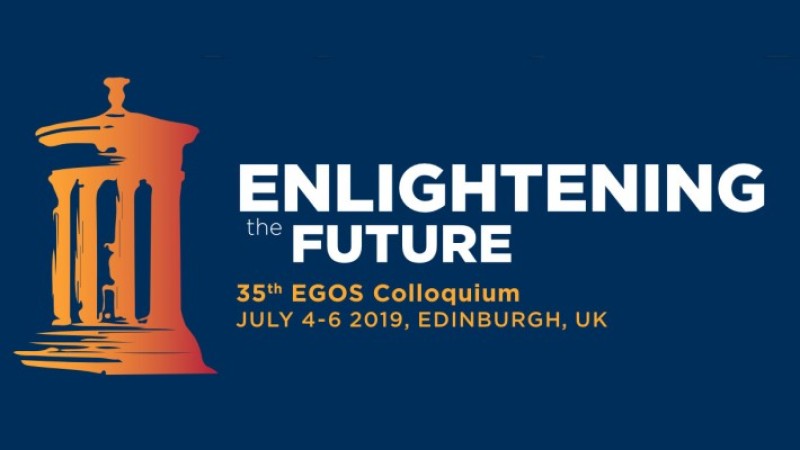Sub-theme 22: Evaluative Actions: Exploring Evaluation in Professional and Organizational Life
Call for Papers
New forms of evaluation are reconfiguring professional and organizational life, reframing how organizations are assessed,
decisions are made and juniors are trained. Various scholars have highlighted the constitutive effects of evaluation, pointing
at the generative potential of e/valuation instruments (Dahler-Larsen, 2013; Espeland & Sauder, 2016). Evaluative practices
such as audit, accreditation, and performance indicators, have provoked organizational changes, tailoring professional practice
to meet evaluative registers (e.g. performance indicators, league tables, protocols) recognizing certain worths over others,
and shaping what gets obscured, what gets highlighted and what is conceived of as good performance – whether in terms of research
output, patient care or educational quality.
The increasing prominence of evaluations within organizations
has given rise to multiple calls for a responsible uses of evaluation technologies and methods, pointing at the dangers of
ignorance, gaming and perverse effects. Whilst these calls are crucial and pertinent, they may also obscure the more creative
ways in which e/valuations can and are being used, as well as the caring craftwork this involves (Davies & Horst, 2015).
Evaluative metrics, for instance, also allow for productive experimentation enabling more diverse and context-sensitive practices
of evaluating and assessing professionals (Wallenburg et al., 2016; de Rijcke et al., 2016). Evaluations, and the qualculative
work (Callon & Law, 2005) they often entail, may simultaneously add reflexivity to organizational practices and involve
strategic ignorance (Pinto, 2015; Gross & McGoey, 2015); rendering certain aspects invisible, while strengthening others.
In this sub-theme, we explore evaluative practices in organizations, focusing on the dynamics that occur when
activities in an organization become subject to multiple (sometimes competing) registers and orders of worth (Brandtner, 2017;
Pontikes, 2012; Stark, 2009). Sociological research suggests that the plurality of evaluation registers to which an organization
is subject may strengthen the ‘resilience’ and ‘creative potential’ of that organization.
Moreover, bringing
together various e/valuation practices may allow to better account for the heterogeneous aims and practices that constitute
organizational work (Bal, 2017). The production of evaluative facts, however, involves work as well, bringing in new kinds
of legitimate and often highly technical expertise in organizations, further (re)shaping organizational infrastructures (Keating
& Cambrosio, 2009), sometimes at the expense of old hierarchies. Hence, we wish to bring into awareness the multiplicity
of evaluation practices and how these influence evolving organizational practices as a way of ‘becoming’ (Clegg et al., 2005),
which includes, but is not limited to, affective as well as cognitive aspects of subjectivity. We wish to explore the resulting
ambiguities and uncertainties not only as side effects of evaluation, but also as potential arenas for the production of social
order(s).
We propose to proceed in the mode of what Fochler and de Rijcke (2017) have termed as the ‘evaluative
inquiry’. This experimental mode aims to be sensitive to the critical multidimensionality of encounters between evaluations
and professional environments, as well as further exploring ways to express this multidimensionality as punctualizations in
ongoing organizational processes of producing value.
We kindly invite papers that deal with, but are not
limited to, the following questions:
How to analyze the complex relationship between evaluative knowledges and professional practices?
What ‘comfortable’ and less fitting subjectivities are interpellated in certain evaluative systems?
Whose voice is or becomes legitimate within organizations and what kind of expertise does this involve?
Which valuation practices and commitments (professional, ethical, material) are we ourselves entangled with in our own work?
How do we study and engage with such practices?
References
- Bal, R. (2017): “Playing the indicator game: reflections on strategies to position an STS group in a multi-disciplinary environment.” Engaging Science, Technology, and Society, 3, 41–52.
- Brandtner, C. (2017): “Putting the World in Orders: Plurality in Organizational Evaluation.” Sociological Theory, 35 (3), 200–227.
- Clegg, S.R., Kornberger, M., & Rhodes, C. (2005): “Learning/Becoming/Organizing.” Organization, 12 (2), 147–167.
- Dahler-Larsen, P. (2013): “Constitutive effects of performance indicators.” Public Management Review, 16 (7), 969–986.
- Davies, S.R., & Horst, M. (2015): “Crafting the group: Care in research management.” Social Studies of Science, 45 (3), 371–393.
- de Rijcke, S., Wallenburg, I., Wouters, P., & Bal, R. (2016): “Comparing comparisons. On rankings and accounting in hospitals and universities.” In: J. Deville, M. Guggenheim & Z. Hrdličková (eds.): Practising Comparison: Logics, Relations, Collaborations. Manchester: Mattering Press, 251–280.
- Espeland, W., & Sauder, M. (2016): Engines of Anxiety. Academic Rankings, Reputation, and Accountability. New York: Russel SAGE Foundation.
- Fochler, M., & de Rijcke, S. (2017): “Implicated in the indicator game? An experimental debate.” Engaging Science, Technology, and Society, 3, 21–40.
- Gross, M., & McGoey, L. (2015): Routledge International Handbook of Ignorance Studies. London: Routledge.
- Keating, P., & Cambrosio, A. (2009): “Who’s minding the data? Data monitoring committees in clinical cancer trials.” Sociology of Health & Illness, 31 (3), 325–342.
- Pinto, M.F. (2015): “Tensions in the agnotology: Normativity in the studies of commercially driven ignorance.” Social Studies of Science, 45 (2), 294–315.
- Pontikes, E.G. (2012): “Two Sides of the Same Coin. How Ambiguous Classification Affects Multiple Audiences’ Evaluations.” Administrative Science Quarterly, 57 (1), 81–118.
- Stark, D. (2009): The Sense of Dissonance: Accounts of Worth in Economic Life. Princeton, NJ: Princeton University Press.
- Wallenburg, I., Quartz, J., & Bal, R. (2016): “Making Hospitals Governable. Performativity and Institutional Work in Ranking Practices.” Administration & Society, first published online on November 30, 2017, http://journals.sagepub.com/doi/abs/10.1177/0095399716680054.


